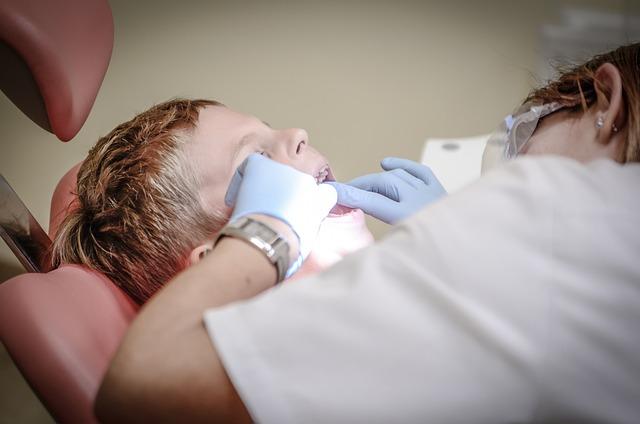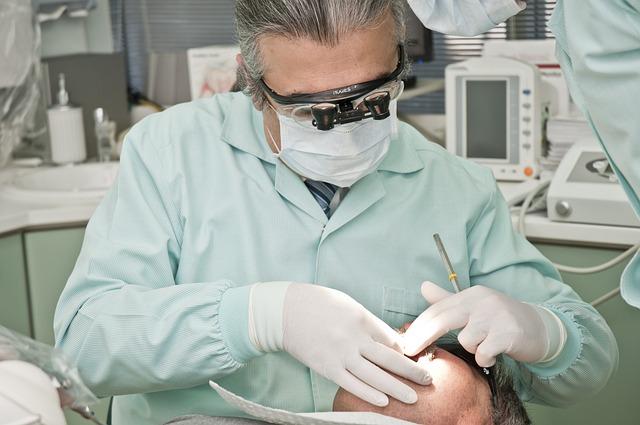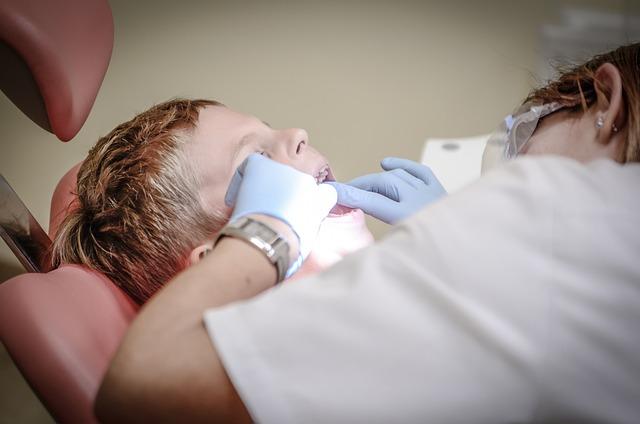Is Salt Water Rinse Good After Tooth Extraction? Expert Advice
Have you recently undergone a tooth extraction and are now wondering about the best way to promote a speedy recovery? One popular recommendation is salt water rinses, which have been purported to have numerous benefits for oral health. But is this method truly effective in aiding the healing process? In this article, we will delve into the topic and provide expert advice on whether salt water rinses are indeed good after tooth extraction. So, sit back, relax, and let’s uncover the truth behind this widely discussed practice.
1. Understanding the Benefits of Salt Water Rinse: Expert Insights on Post-Tooth Extraction Care
Understanding the Benefits of Salt Water Rinse
After a tooth extraction, proper post-care is crucial for a smooth and speedy recovery. One effective method that experts recommend is salt water rinsing. This simple yet powerful technique offers several benefits that aid in the healing process and promote oral health.
- Promotes healing: Salt water rinse helps reduce inflammation and cleanse the extraction site. Its gentle saline solution aids in removing debris, bacteria, and food particles, preventing infection and promoting faster healing.
- Reduces discomfort: The mild antiseptic properties of salt water can alleviate pain and discomfort associated with tooth extraction. Rinsing with this solution can soothe the area and provide temporary relief.
- Prevents infection: Salt water has natural antibacterial properties that can help prevent infection. By maintaining a salt water rinse routine, you create an environment in which harmful bacteria struggle to thrive, reducing the risk of complications.
Remember, it’s essential to follow your dentist’s instructions for salt water rinsing, including the frequency and duration of each rinse. If you experience excessive pain, swelling, or bleeding, it’s crucial to contact your dentist promptly.

2. The Science Behind Salt Water Rinse After Tooth Extraction: Expert Opinions Unveiled
When it comes to the science behind salt water rinses after tooth extraction, experts have weighed in with their opinions and findings. Here’s what they have to say:
1. Reduces swelling and inflammation: Salt water rinses help to reduce swelling and inflammation in the gums after a tooth extraction. The salt in the water creates a hypertonic environment, which draws out excess fluid from the tissues and promotes healing.
2. Provides a gentle cleanse: Salt water rinses act as a natural antiseptic, helping to cleanse the area around the extraction site. This can prevent infection and promote a clean environment for the healing process to take place.
3. Soothes pain and discomfort: The natural saline solution created by salt water rinses can provide temporary relief from pain and discomfort after a tooth extraction. It helps to soothe the area and reduce sensitivity.
4. Promotes healing: Salt water rinses create an optimal environment for healing by maintaining proper pH levels in the mouth. This can aid in the formation of new tissue and prevent the growth of harmful bacteria.
Overall, the science behind salt water rinses after tooth extraction aligns with the positive effects reported by experts. It is a safe and effective method to support the healing process and promote oral health.

3. Expert Recommendations: Why Salt Water Rinse is a Go-To Solution for Optimal Healing After Tooth Extraction
Salt water rinse is highly recommended by experts for optimal healing after tooth extraction. This simple yet effective solution has been proven to provide numerous benefits and accelerate the healing process. Here are some reasons why salt water rinse should be a go-to solution:
- Promotes wound healing: Salt water rinse helps create an ideal environment for the extraction site to heal quickly. The saline solution helps cleanse the area, reduce bacteria, and remove debris, thus preventing infections.
- Reduces swelling and pain: The gentle swishing of salt water can help alleviate inflammation and discomfort associated with tooth extraction. It provides a soothing effect on the gums and reduces swelling, allowing for a more comfortable recovery.
- Minimizes the risk of dry socket: Dry socket is a common complication after tooth extraction where the blood clot dislodges or dissolves, exposing the underlying bone and nerves. Salt water rinse helps maintain oral hygiene, keeping the extraction site clean and lowering the risk of developing dry socket.
- Accessible and cost-effective: One of the biggest advantages of salt water rinse is its accessibility and affordability. It can be easily prepared at home using common ingredients, making it a convenient solution for post-extraction care.
It is important to note that while salt water rinse is generally safe and beneficial for most individuals, it is always recommended to consult with your dentist or oral surgeon for specific post-operative instructions. They will provide personalized advice based on your unique situation, ensuring optimal healing and recovery after tooth extraction.

4. The Healing Power of Salt Water Rinse: Expert Advice for Accelerated Recovery Following Tooth Extraction
Salt water rinse is a simple yet highly effective method for promoting faster healing after a tooth extraction. Experts recommend incorporating this practice into your post-extraction recovery routine to minimize discomfort and reduce the risk of infection. Here are some key points to keep in mind when using salt water rinse:
1. Prepare the solution: Dissolve half a teaspoon of salt in eight ounces of warm water. It is vital to use warm water as it helps to dissolve the salt more effectively.
2. Rinse gently: Take a small sip of the salt water solution and swish it around your mouth for about 30 seconds. Be careful not to gargle or swish too forcefully, as this may dislodge the blood clot and impede the healing process.
3. Spit, don’t swallow: After swishing, spit out the solution gently into the sink. Avoid swallowing the salt water, as it may cause dehydration or an upset stomach.
4. Repeat the process: You should aim to rinse your mouth with the salt water solution at least two to three times a day, particularly after meals. This routine will help keep the extraction site clean, minimize swelling, and prevent bacteria from causing infections.
Remember, the healing power of salt water rinse lies in its ability to cleanse the area and create an environment that promotes faster healing. By incorporating this simple yet effective technique into your post-extraction care routine, you can significantly accelerate your recovery and ensure a smoother healing process.
5. Unveiling the Secrets of Salt Water Rinse: Expert Tips for Promoting Oral Health Post-Tooth Extraction
When it comes to promoting oral health after a tooth extraction, salt water rinse can be a game-changer. This simple yet effective technique can help speed up the healing process and prevent infections. Here are some expert tips to make the most out of salt water rinse:
1. Properly prepare the solution: Dissolve half a teaspoon of salt in eight ounces of warm water. Ensure the salt is completely dissolved before using the solution.
2. Gently rinse your mouth: Take a small sip of the salt water solution and swish it around your mouth for 30 seconds. Spit it out and repeat until you have used the entire solution.
3. Be consistent: Perform the salt water rinse at least 2-3 times a day, especially after meals and before bedtime. Consistency is key in promoting oral health and preventing complications.
By incorporating salt water rinse into your post-tooth extraction routine, you can support the healing process and maintain good oral hygiene. Remember to consult with your dentist for personalized advice and recommendations.

6. Salt Water Rinse After Tooth Extraction: Expert Perspectives on Its Role in Preventing Infections and Promoting Healing
After a tooth extraction, proper care is crucial to prevent infections and promote healing. One commonly recommended practice is a salt water rinse. This simple home remedy can provide several benefits that aid in the recovery process.
1. Reducing bacteria: Salt water has natural antimicrobial properties that help kill bacteria and prevent infection. Rinsing with a saline solution can effectively cleanse the area around the extraction site, minimizing the risk of harmful bacteria accumulating and causing complications.
2. Soothing the wound: Salt water rinses have a soothing effect on the wound, providing relief from pain, swelling, and discomfort. The gentle saline solution helps keep the area clean and promotes healing by reducing inflammation.
3. Removing food particles: After a tooth extraction, it is common for food particles to get trapped in the surrounding area. Rinsing with salt water can help dislodge these particles, preventing them from becoming a breeding ground for bacteria and reducing the chance of infection.
While a salt water rinse is an effective and natural way to promote healing and prevent infections after a tooth extraction, it is important to consult with your dentist for specific instructions and advice tailored to your individual case. They can provide you with the appropriate salt concentration and guide you on the frequency and duration of the rinses for optimal results.
7. Expert Advice on Salt Water Rinse: A Natural Solution for Soothing Discomfort and Reducing Swelling After Tooth Extraction
After a tooth extraction, it’s common to experience discomfort and swelling. One natural and effective solution to help alleviate these symptoms is a salt water rinse. This age-old remedy has been recommended by dental experts for its numerous benefits. By following these steps, you can harness the power of salt water to promote healing and relieve post-extraction discomfort:
- Prepare the salt water solution: Dissolve a half teaspoon of salt in a cup of warm water. Make sure the water is not too hot to avoid burning your mouth.
- Gently rinse your mouth: Take a small sip of the salt water mixture and swish it around your mouth for about 30 seconds. Be careful not to gargle or swallow the solution.
- Spit out the solution: After rinsing, spit out the salt water into the sink. Avoid swallowing the solution, as it may cause dehydration or upset stomach.
- Repeat the rinse: You can perform this salt water rinse 2-3 times a day, especially after meals, for optimal results.
This simple yet powerful remedy can help reduce inflammation, soothe pain, and prevent infection. It works by drawing out excess fluid, reducing swelling, and promoting faster healing in the extraction site. Remember to always consult with your dentist or oral surgeon for personalized advice and follow any post-operative care instructions given to you.
8. Debunking Myths: Expert Opinions on the Efficacy of Salt Water Rinse for Post-Tooth Extraction Care
When it comes to post-tooth extraction care, one common practice that has been surrounded by various myths is the use of salt water rinses. To debunk these myths and provide expert opinions on the efficacy of salt water rinses, we have consulted with dental professionals who have extensive experience in this field.
According to these experts, salt water rinses can be highly beneficial for post-tooth extraction care. Here are some key points they emphasized:
- Promotes healing: Salt water rinses have been found to help reduce inflammation and promote healing in the extraction site. The gentle saline solution helps cleanse the area and prevent infection, allowing the gums to heal more effectively.
- Reduces discomfort: Salt water rinses can also provide relief from discomfort or pain after a tooth extraction. The mild salt solution acts as a natural antiseptic and can soothe the area, reducing swelling and irritation.
- Easy to prepare and use: One of the advantages of salt water rinses is their simplicity. All you need is warm water and salt, which are readily available in most households. Simply mix half a teaspoon of salt in eight ounces of warm water, and gently swish the solution around your mouth for 30 seconds before spitting it out.
While salt water rinses are generally recommended for post-tooth extraction care, it’s important to follow the advice of your dentist or oral surgeon. They may provide specific instructions tailored to your individual case. Remember to consult them if you have any concerns or questions about using salt water rinses for your aftercare.
9. Salt Water Rinse: A Gentle Approach to Aftercare Following Tooth Extraction, Backed by Expert Guidance
Salt water rinses are a popular and gentle approach to aftercare following tooth extraction, and they are backed by expert guidance. Here’s everything you need to know about this effective method:
- What is a salt water rinse? A salt water rinse involves dissolving salt in warm water and gently swishing it around your mouth. This simple solution has been used for centuries and is known for its natural healing properties.
- Why should you use a salt water rinse? Salt water rinses help promote healing and reduce the risk of infection after a tooth extraction. The gentle nature of this approach makes it suitable for most patients, even those with sensitive gums.
- How often should you use a salt water rinse? Following your dentist’s instructions, you should typically rinse with salt water two to three times a day, especially after meals. Make sure to use warm water and dissolve half a teaspoon of salt for each cup.
- What are the benefits? Salt water rinses help cleanse the extraction site, reduce inflammation, and alleviate discomfort. The salt acts as a natural disinfectant, creating an environment that promotes healing.
- Are there any precautions? While salt water rinses are generally safe, it’s important to avoid vigorous swishing as it may dislodge the blood clot and delay healing. Additionally, if you experience any unusual pain or swelling, consult your dentist immediately.
Remember to always consult your dentist for personalized aftercare instructions. Incorporating a salt water rinse into your daily routine can be a gentle and effective way to promote healing and ensure a smooth recovery after tooth extraction.
10. Expert Insights on Salt Water Rinse: Enhancing Oral Health and Ensuring a Smooth Recovery After Tooth Extraction
When it comes to promoting oral health and aiding in the healing process after a tooth extraction, salt water rinse has emerged as a trusted solution. We reached out to dental experts to gather their insights and recommendations on the benefits of salt water rinses:
- Promotes healing: Salt water rinse acts as a natural disinfectant, reducing the risk of infection in the extraction site. Its gentle cleansing properties help to remove food particles and debris, keeping the wound clean and promoting faster healing.
- Reduces swelling and inflammation: The mild saltwater solution can help soothe and reduce swelling around the extraction site. This can alleviate discomfort and aid in a more comfortable recovery.
- Relieves pain: Salt water rinse can provide temporary relief from post-extraction pain by reducing inflammation and soothing the area. It is important to note that while it can help manage discomfort, it should not replace any prescribed pain medication.
- Easy and cost-effective: Salt water rinse is a simple and affordable home remedy that can be easily prepared by mixing half a teaspoon of salt in warm water. It is widely accessible and does not require any special equipment.
It is important to consult with your dentist or oral surgeon before starting any post-extraction regimen. They can provide personalized guidance based on your specific needs and ensure that salt water rinse is suitable for your situation. Remember to follow their instructions and maintain good oral hygiene practices to enhance your recovery process.
Frequently Asked Questions
Q: Is it recommended to use a salt water rinse after tooth extraction?
A: Yes, using a salt water rinse after tooth extraction is highly recommended by dental experts.
Q: What are the benefits of using a salt water rinse post-extraction?
A: Salt water rinses have numerous benefits, including reducing swelling, minimizing pain, preventing infection, and promoting faster healing.
Q: How does a salt water rinse help reduce swelling?
A: The salt water rinse acts as a natural antiseptic, drawing out fluids from the tissues surrounding the extraction site. This helps to reduce swelling and promote a faster recovery.
Q: Can a salt water rinse alleviate post-extraction pain?
A: Absolutely. Gargling with a salt water solution helps to cleanse the area, removing any debris or bacteria that may contribute to discomfort. Additionally, the rinse has a soothing effect on the extraction site, providing relief from pain.
Q: How does a salt water rinse prevent infection?
A: Salt water has natural antimicrobial properties that help kill bacteria and prevent infections. Rinsing with salt water can effectively cleanse the extraction site, reducing the risk of bacterial growth and subsequent infections.
Q: Is it safe to use a salt water rinse after any type of tooth extraction?
A: Yes, a salt water rinse is safe for use after any type of tooth extraction, whether it’s a simple extraction or a more complex surgical procedure.
Q: How often should I use a salt water rinse after tooth extraction?
A: It is recommended to use a salt water rinse at least 2-3 times a day, especially after meals, for the first few days following the extraction. However, it is important to follow your dentist’s specific instructions for optimal results.
Q: Are there any side effects or risks associated with using a salt water rinse?
A: When used as directed, a salt water rinse poses minimal risks. However, if you experience any unusual symptoms or allergic reactions, it is best to consult your dentist immediately.
Q: Can I replace a salt water rinse with a mouthwash or other oral care products?
A: While there are various mouthwashes and oral care products available, it is recommended to stick to a salt water rinse specifically after tooth extraction. Salt water is a natural, cost-effective, and safe option that provides specific benefits for post-extraction care.
Q: How long should I continue using a salt water rinse after tooth extraction?
A: It is generally advised to use a salt water rinse for about a week following the tooth extraction. However, your dentist may recommend a longer or shorter duration based on your specific situation.
Q: Are there any alternative home remedies for post-extraction care?
A: While a salt water rinse is the most commonly recommended home remedy, other alternatives such as baking soda rinses, chamomile tea bags, or cold compresses may also help alleviate discomfort and promote healing. It is always best to consult your dentist before trying any alternative remedies.
Key Takeaways
In conclusion, the question of whether salt water rinse is good after tooth extraction has been thoroughly examined with the guidance of dental experts. After careful analysis, it is evident that salt water rinse can indeed be beneficial in promoting healing and reducing the risk of infection. The saline solution helps cleanse the area, soothes the tissues, and aids in the removal of debris. However, it is crucial to follow the proper instructions provided by your dentist, as excessive rinsing or using water that is too salty may have adverse effects. It is always wise to consult with your dental professional before incorporating any new oral care practices. Ultimately, with the expert advice and knowledge at hand, you can confidently make informed decisions about your post-tooth extraction care routine.






